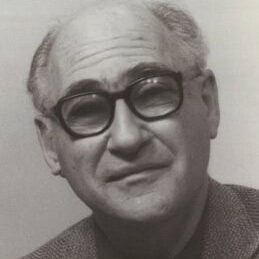The American Historical Association awards the George L. Mosse Prize annually for an outstanding major work of extraordinary scholarly distinction, creativity, and originality in the intellectual and cultural history of Europe since 1500.
The current prize amount is $1,000.
The general rules for submission are:
- Only books of a high scholarly distinction should be submitted. Research accuracy, originality, and literary merit are important selection factors.
- Books with a copyright of 2025 are eligible for the 2026 award.
- Nomination submissions may be made by an author or by a publisher. Publishers may submit as many entries as they wish. Authors or publishers may submit the same book for multiple AHA prizes.
- Nominators must complete an online prize submission form for each book submitted. Once you fill out the form you will receive an email with the committee’s contact information.
- One copy of each entry must be sent to each committee member and clearly labeled “Mosse Prize Entry.” Print copies preferred unless otherwise indicated. If only e-copy is available, please contact review committee members beforehand to arrange submission format.
Please Note: The competition will open in mid-March 2026. Entries must be received by May 15, 2026, to be eligible for the 2026 competition. Entries will not be returned. Recipients will be announced on the AHA website in October 2026 and recognized during a ceremony at the January 2027 AHA annual meeting in New Orleans.
For questions, please contact the Prize Administrator.

George L. Mosse
George L. Mosse (1918–99) was Bascom-Weinstein Professor of Jewish Studies at the University of Wisconsin-Madison. He was the author of such works as The Crisis of German Ideology: The Intellectual Origins of the Third Reich (1964), Toward the Final Solution: A History of European Racism (1977), Nationalism and Sexuality (1985), and The Image of Man: The Creation of Modern Masculinity (1996). This prize was established with funds donated by former students, colleagues, and friends of Dr. Mosse.
Past Recipients
Current Recipient
Catherine Tatiana Dunlop, Montana State University, Bozeman
The Mistral: A Windswept History of Modern France (Univ. of Chicago Press)
In The Mistral, Catherine Tatiana Dunlop has written a compelling cultural history of the famous winds that shaped Provence. Drawing upon an expansive array of sources, this book captures the power of sensory experience in the formulation of ideas. Dunlop’s deftly written book is both an ecological history of the lifeways in southern France and an examination of how state actors, scientists, and artists responded to nature in a modernizing world.